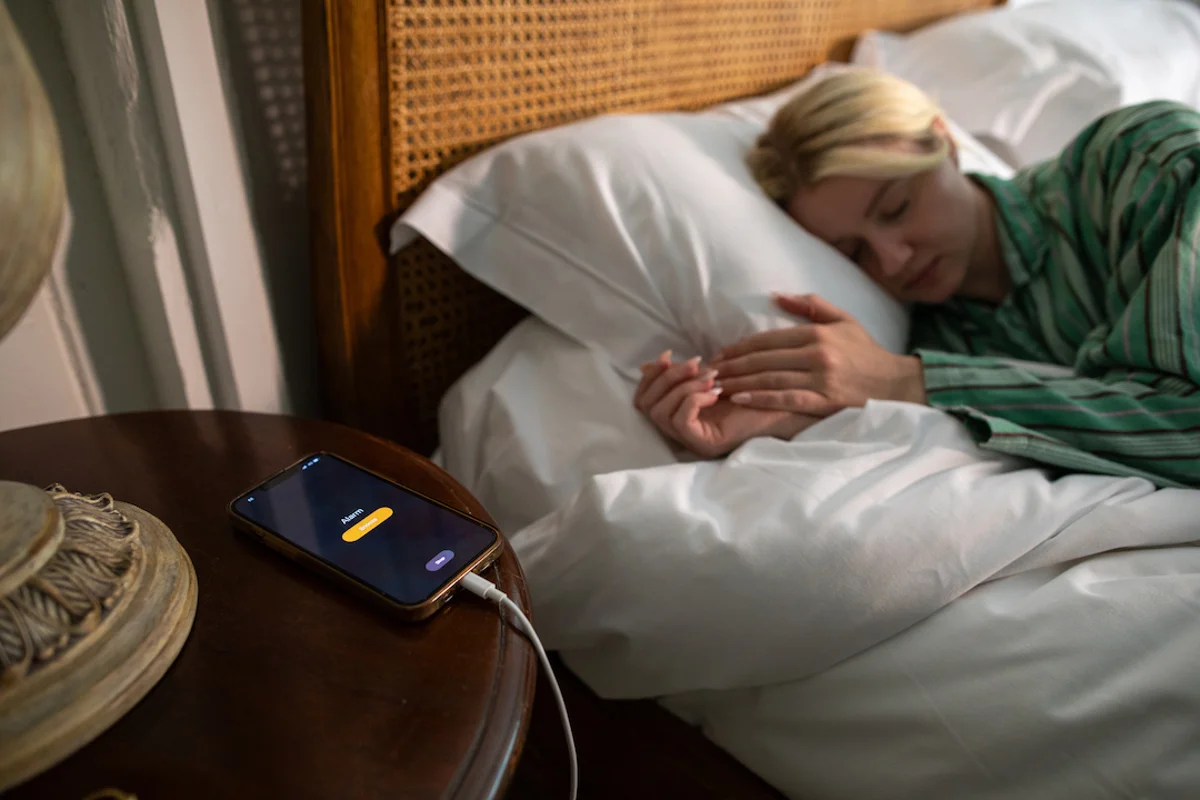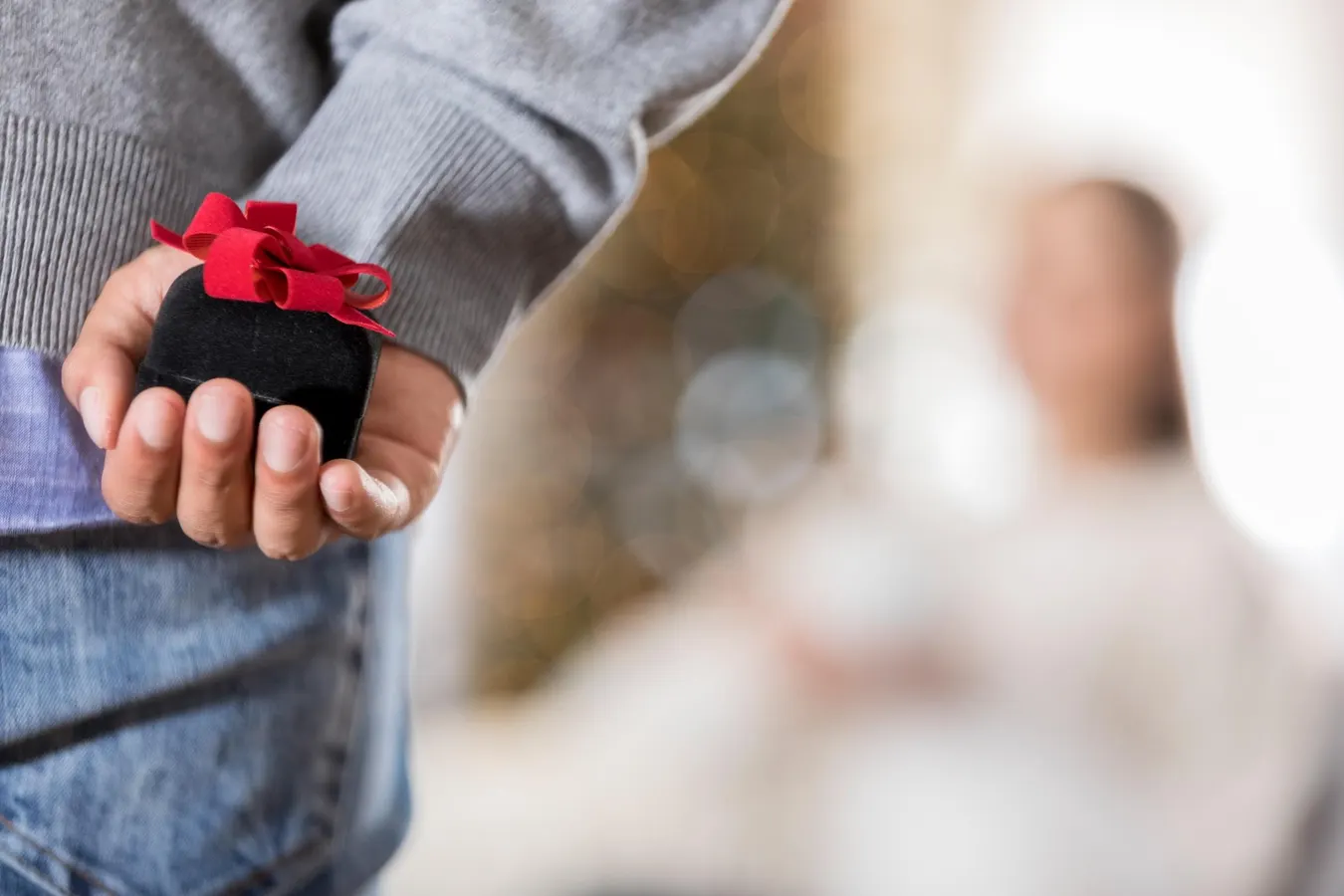Copyright independent

Sleep hygiene isn’t a new concept, but in recent years it’s taken on new significance and is now an expert-prescribed arm of lifestyle medicine. As more of us find our sleep out of sync with our schedules, disrupted by late-night scrolling, long workdays or the endless light of our devices, we’re rediscovering the value of small rituals that help us to rest properly. With the clocks going back on Sunday 26 October and British Summer Time drawing to a close, many of us are bracing for that familiar dip in energy that comes with shorter days and darker mornings. When daylight dwindles, our natural circadian rhythms can easily slip out of alignment, leaving us groggy in the morning, restless at night and flat by mid-afternoon. Over the years, I’ve come to see good sleep hygiene as a form of protection. These habits preserve my energy and help me to stay resilient and healthy through the seasonal shift. My sleep hygiene helps me avoid the low moods and sluggishness as daylight hours contract. The term “sleep hygiene” was first introduced in 1977 by a clinical psychologist named Dr Peter Hauri, one of the early pioneers of behavioural sleep medicine. Hauri used it in a paper titled Current Concepts: The Sleep Disorders published in The Journal of Clinical Psychiatry, where he outlined a set of practical lifestyle habits and environmental factors that could help people with mild insomnia improve sleep quality without medication. At the time, insomnia was often treated pharmacologically, but Hauri’s approach reframed sleep problems as behavioural and environmental, not purely medical. He created a checklist of habits that we still use now and that have formed the basis for TikTok trends like sleepmaxxing. The concept caught on in both clinical and public health settings through the 1980s and 1990s, as sleep medicine grew into a formal field. By the early 2000s, “sleep hygiene” had entered mainstream wellness vocabulary and now it seems we need it more than ever. As the clocks change, that extra hour in bed can feel like a gift but it can also throw our body clocks into chaos and leave us feeling out of sorts for the next few months. According to Dr Babak Ashrafi, A GP and resident health expert at Superdrug Online Doctor, this is the perfect time to focus on what he calls “your bedtime ritual for success”. “When your sleep hygiene is on point, you’re more likely to get the deep, restorative sleep that helps you feel refreshed and energised. It’s all about building good habits that set you up for a peaceful, restful sleep,” he says. “This means things like keeping a regular sleep schedule, creating a cosy sleep space and steering clear of late-afternoon coffee.” Bedtime rituals needn’t take forever nor require a ton of accessories and sleep aids. But they do need to be consistent. I’m probably guilty of taking things a little too seriously when it comes to my sleep hygiene, but as someone who struggled with insomnia for years and has tried everything, I know what works best for me. I hydrate before and after sleep, use aromatherapy (frankincense is my go-to), track my recovery with my Whoop and Oura Ring, and block out light and noise with an eye mask and ear plugs. Before bed, I always do a few minutes of breathwork or Yoga Nidra, and sometimes use mouth tape. It’s all part of creating a calm environment that signals to my nervous system that it’s time to shut down and rest. The brain loves a habit so I try to do the same thing every night. “The most important step is sticking to a bedtime routine that winds you down,” says Dr Ashrafi. Whether you use sleep aids and gadgets or not, there are things the body responds well to that make up the basics of good sleep hygiene. Light and temperature are two of the key factors, Temperature is about more than just comfort. “Creating the right bedroom environment is crucial for a good night’s sleep,” says Dr Ashrafi. “Strive for a cool temperature between 15–19C, which helps your body achieve its optimal core temperature for deeper rest. A dark room is also super important; it signals your brain to produce melatonin, helping you fall asleep faster and stay asleep longer.” This has been true in my experience. I’ve learnt that light, temperature and texture all matter, and a cool, dark room is the best condition for sleep. I also sleep in pyjamas and under bed linen that’s made from natural fibres to help regulate my temperature. And because I’m a wellbeing editor and love a health gadget, I also use a temperature-controlled mattress called an Eight Sleep that shifts between hot and cool to keep me at optimal temperature. Read more: What is biohacking – and can you actually hack your health? Obviously, using a fan, opening a window or switching between a winter duvet or summer duvet can achieve the same effects. What’s important is ensuring your body can drop into a sound sleep and stay there without being disturbed by temperature changes. Temperature can affect how much time you spend in REM sleep and deep sleep, which are responsible for brain function, emotional memory processing, physical recovery and immune function. Too much or not enough light can also affect your sleep quality so good sleep hygiene depends on creating the right conditions for ample deep sleep. Your room should be dark. That’s the bare minimum. Some people, myself included, like to use sunset and sunrise simulating alarm clocks or SAD lamps to support the body’s natural circadian rhythms. This can help to release the right hormones for sleepiness and wakefulness at the right times, particularly during winter when it can still be dark when you wake up and go to bed. The connection between sleep, light and mood also explains why so many of us feel foggy as winter sets in. According to Harry Jarrett, a wellbeing expert and the head of science and research at supplement company Heights: “When the days get shorter, our brains receive less exposure to natural daylight, which has a knock-on effect on many of our core biological processes. Light is the key regulator of our circadian rhythm – essentially the body’s 24-hour clock – which governs everything from our sleep-wake cycle to hormone release and even how efficiently we process information.” He explains that reduced daylight lowers serotonin – which keeps us focused and emotionally balanced – and increases melatonin, “nudging us into feeling more lethargic and less mentally sharp”. Of course, the darker evenings mean the glowing screens of TVs and phones seem more appealing. “As we move into darker evenings, the temptation to spend more time scrolling or streaming can throw off your internal clock even further,” says Dr Ashrafi. “Experts suggest limiting screen exposure and instead embracing calming pre-bedtime rituals like reading or meditation to help your body wind down naturally.” This advice is echoed by the NHS, which recommends removing TVs and phones from the bedroom. This is part of what’s known as stimulus control, a way of retraining the brain to associate bed with sleep, not wakefulness. The NHS has been saying this for years, but recent research adds real urgency. A 2025 study in JAMA Network Open analysed 122,058 adults and found that using screens before bed was linked to shorter, lower-quality sleep, particularly for night owls. Another, in Frontiers in Psychiatry, followed more than 45,000 young adults and found that each extra hour of screen time in bed increased the risk of insomnia symptoms by 59 per cent and cut total sleep by around 24 minutes. Screens don’t just steal time, they keep your brain wired when it should be winding down. Along with avoiding screens before bed, experts advise putting them out of reach so that you can’t check them during the night either. If you wake in the night, which many of us do, for reasons ranging from hormones to temperature shifts or intrusive thoughts, the response matters as much as the cause. “Try to resist the urge to check the time on your phone,” says Dr Ashrafi. “The blue light emitted by screens can disrupt your circadian rhythm, as it mimics daylight and inhibits the production of melatonin. If you can’t drift back to sleep, get up and do something calming in low light, like reading or listening to soft music. Once you feel sleepy again, return to bed and let sleep come naturally.” Sleep scientist Greg Potterexplains that fostering good sleep hygiene is especially important this month due to the clocks going back. Though we gain an extra hour in bed, his advice is to: “treat it like a biological reset, not a lie-in”. Read more: When did we all stop being able to sleep without endless equipment? Rather than simply enjoying a longer sleep and moving on, he suggests using this as the perfect moment to reset bedtime habits and think about your sleep hygiene. “Not everyone should follow the clock. Night owls who already struggle with sleep debt might be better off keeping their old schedule. People naturally need more rest as nights lengthen and this shift finally lets our routines match what biology wants. This is the one time of year your body clock and the wall clock actually agree. “The October clock change can work in our favour – helping our sleep patterns align with the darker months ahead.” Chronotypes – the science of being a morning or evening person as Potter mentions – can explain a lot with regards to what good sleep hygiene looks like for you. There are of course, basic rules around light, temperature and sound that everyone can follow, but how many hours you sleep and when varies from person to person. Some of us are genetically predisposed to rise early, others experience natural hormonal shifts later. I’ve been told by sleep experts and by my sleep tracking devices that I’m a “hummingbird,” neither lark nor owl. Apparently with the right sleep training, both early starts and late starts can benefit me. Personally, I don’t love a very early start and I reject the premise that rising early makes you in any way more industrious or morally superior. What does matter with regards to sleep hygiene is consistency of bedtime and wake time and how many hours of sleep you’re getting. A 2020 study showed that greater variability in sleep timings was associated with poorer sleep outcomes and a higher rate of “social jetlag”. My Whoop often corroborates this research by giving me a poor recovery score if I switch my bedtime and wake time up too much. Jarrett explains that, “by combining simple, evidence-based habits,” we can ultimately feel better in the long term. “Prioritise natural light, strengthen sleep hygiene, and fuel your brain properly. By combining these habits, you give your brain the best chance of maintaining clarity and resilience, even during the darker months”. Good sleep hygiene isn’t about perfection or having all the accessories, it’s about creating the right conditions for rest and being consistent with those conditions. As the nights grow longer and the days shorter, building rhythms that restore us can help boost energy and mood for years to come. Take a smarter approach to feeling good. Sign up to the Well Enough newsletter for evidence-based wellness insights.



